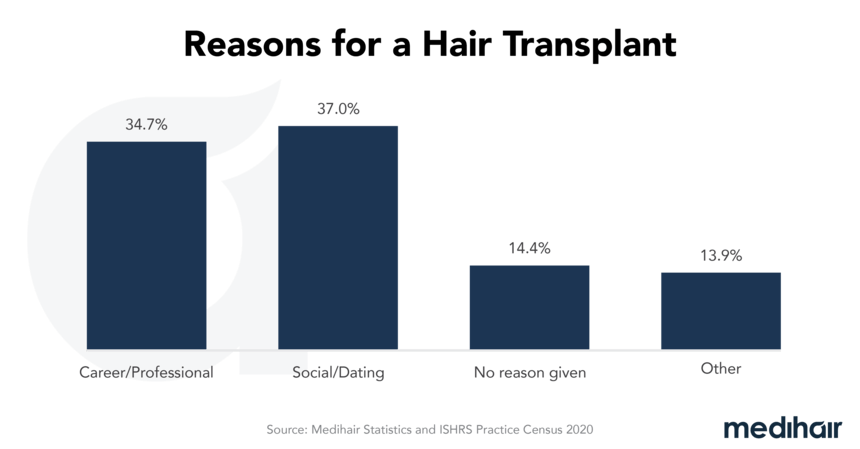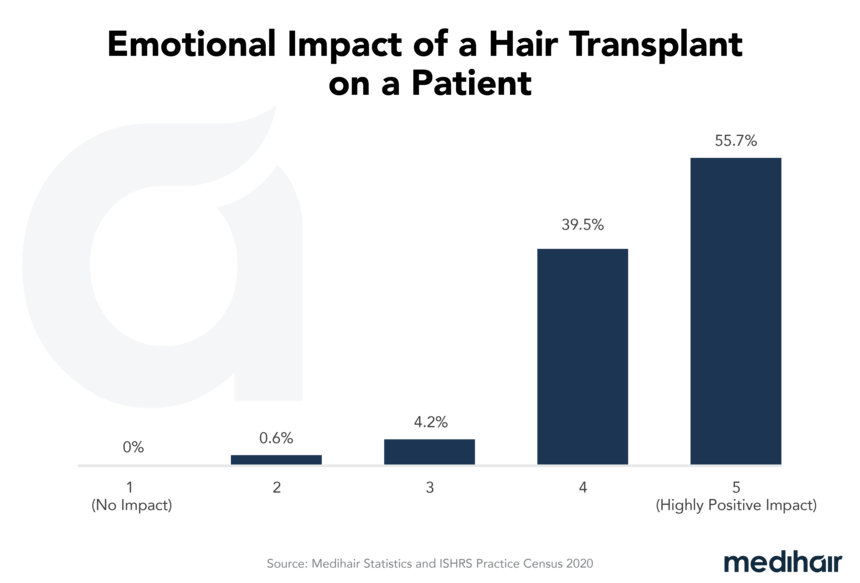Statistics: Hair Loss and Career Success

Considering the increasing emphasis on an employee’s presentation in the workplace, is hair loss beginning to directly impact people’s career success? Being one of the leading hair care platforms in the world, with over 100,000 monthly users, we at Medihair have compiled the latest statistics connecting hair loss and career success.
Most Important Findings
| Psychological Effects | Anxiety... |
| Impact on Career | Affects women more |
| Treatment Options | Hair Transplant... |
| Study | Description |
|---|---|
| Bater et al. (2016) | 122 participants were made to complete a web-based survey featuring photographs of men before and after a hair transplant. Participants were asked to compare the two images side by side. The findings of the study showed a significant positive effect of hair transplants on participants’ perception of age, attractiveness, approachability and successfulness. |
| Alfonso et al. (2005) | 1536 men were asked to fill out a telephone survey discussing the psychological effects of hair loss. Over 70% of these men reported hair to be an important feature of their image. While 62% agreed that hair loss could affect self-esteem and, in turn, their career success. |
| Karaman et al. (2006) | 252 participants were presented with a hair loss form containing 5 questions of socio demographic features, eight questions for dermatological features and eight questions for psychological evaluation. 61.4% of the participants accepted androgenetic alopecia as a natural condition with a solution that should be sought. While 58.2% thought that the psychological effect of hair loss would mostly be negative and could affect career success. |
Sources



